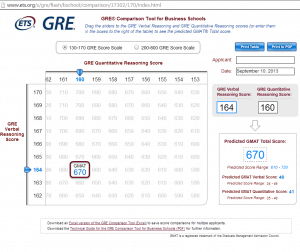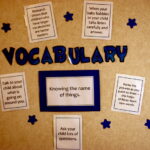GRE English Vocabulary Scores: 5 Best Ways To Improve Them
The Graduate Record Examinations (or GRE) are an increasingly popular litmus test that graduate schools in the United States use to determine whether you’re cut out for their curricula. Along with the GMAT, they test you on your skills with reading comprehension, critical reasoning, vocabulary usage, high school level math and reasoning, and analytical writing. Performing well on the GRE is a good indicator of how you place among your fellow graduates. Combined with your college transcript, it can be the difference between getting in to an average program or a top of the line, Ivy League quality institution.
While the English vocabulary section of the GRE may not be the most important, it certainly ranks highly on the list because a strong vocab is the key to communication. And being able to communicate well will serve you on every section of the test. To help you beef up your GRE English vocabulary scores, we’ve turned to some experts in the field for help. Here’s what we’ve found.
1. Read.
Test-takers who embrace reading really set themselves apart on the GRE exam. Reading is the best way to learn vocabulary, though it isn’t always the easiest. We liken it to getting all of your vitamins. The best way to do it is to come by your vitamins naturally through the foods you eat. However, we live in a society where more and more people are chewing four Children’s Gummies per day out of a plastic jar. While it may seem easier on you to have a list of words that you can memorize the meanings to, that doesn’t help you with learning context clues, which is absolutely necessary when you don’t have a dictionary handy.
Bhavin Parikh, CEO and co-founder of Magoosh Test Prep, notes that reading is so effective because, when we do it, “we don’t expect to see a given word.”
“This element of surprise makes reading a more effective vocabulary-learning tool compared to flashcards and memorization,” he said. “Also, the revised GRE focuses on vocabulary in context — again, making reading more effective.”
Parikh added that magazines, such as The New Yorker, Atlantic Monthly, and Economist, “are littered with GRE words and are great ways to improve vocabulary and reading comprehension.”
2. Actively use vocabulary words to better internalize them.
If you’ve ever worked in retail or at a grocery store — or anywhere that makes use of a cash register — then you probably remember those first days of training. You know, when a world-weary, burned out cashier walked you through the steps of how to ring up a sale? You had to learn how to run a credit card, how to count cash back, and (maybe) even how to validate a check. After seeing that clerk ring up a few sales, you probably got the idea of how things operated, but it wasn’t until you were working the register yourself that it became second nature.
In the same way, actively using vocabulary words that you’ve just seen and learned the meanings to, is the only way to make them a permanent part of your knowledge base.
Again, we turn to Parikh who says, “Once you’ve exposed yourself to new words through reading, you should use active usage to embed the words into long-term memory.”
Parikh continued: “Creativity is the key to active usage. As words pop into your head, think of where you can use them. Indeed, the zanier the connections you make with words, the more likely you are to remember them.”
3. Lean on mnemonics.
A mnemonic device is any learning device which can aid your retention of a piece of information. This could be anything, like the knuckle mnemonic that teaches which months have 31 days versus which ones have 30 or less.
(Make a fist. Start with the index finger knuckle on one hand. Make that January. Then, count or run your finger along your hand counting one month for each stop. The valleys between your knuckles are months with 30 days or less. The knuckles themselves are 31-day months. Your first hand will run from January to July. Next, switch to the other hand and start with your index finger knuckle. This will be August, a 31-day month per the rules of the mnemonic. Proceed as with the other hand until you’ve reached December, which will be the third knuckle of this hand. Now you should never have to question how many days are in a month ever again. Your welcome!)
You can use similar “tricks” for improving your GRE English vocabulary score, according to Parikh.
“Let’s say you are trying to remember the definition of lambaste (to reprimand harshly). Now, imagine you are cooking. You’re not very adept in the kitchen, but you want to surprise your significant other with his/her favorite dish. Well, in the end, you end up ruining the lamb. Your significant other arrives and, witnessing your culinary debacle, gives you a good going over, ‘You don’t baste a lamb, you roast one.'”
Parikh admits that it sounds “silly,” but “the main takeaway is that a good mnemonic is the one that works for you. And by good, I mean it is memorable.”
“For instance, you may have already forgotten my lambaste mnemonics, because you didn’t think of them yourself,” he explains. “But, if you are struggling with a word, a clever mnemonic will not only make the word easier to learn but will also — hopefully — make the word more fun to learn.”
4. Harness technology.
Being a tech-savvy traveler through this thing called life, we’re betting that you’ve already thought about this one. If so, good for you. There are a lot of cool options specific to the GRE currently out there. Some of our favorites include:
Vocabador: Taking its inspiration from the Luchador wrestlers of Mexico, this app from Vocabador LLC turns word learning into a fun wrestling game where you have to defeat the mighty Vocabador. You can fight your way through three different weight classes — 12 opponents in all — to earn the belt. The app is SAT and GRE specific, and it can be yours, iPhone lovers, for just $1.99.
myvocabapp: Myvocabapp is a bit pricier than Vocabador, and bills itself as more of a SAT help, but several GRE test takers that we’ve spoken to have said it was invaluable in helping them prepare for their big day. The pricing plan goes on a 30-day period and costs $29.95 per month, but it does contain more than 4,000 words common to the SAT.
VocabAhead.com: According to Hassan Iqbal Khan, CEO and co-founder, VocabAhead’s approach is “rooted in visuals, audios and a short storyline around a word.” The website is free, but you can pick up some paid apps for both iOS and Android. The iPhone version is $9.99. The Kindle Fire version is $4.99.
5. Speed up your reading time.
The hardest thing about college was going from not reading books and passing tests anyway in high school to being forced to read a mountain of boring crap just to make it out of a class with a passing grade. What helped me more than anything was a speed-reading course sponsored by the English department at the university where I was attending.
Since then, tech has made it easier to keep pace with voluminous reading materials. With speed-reading apps on your iOS or Android phone — there are several — you can hone your brain to think in terms of word chunks instead of feeling the need to read each and every syllable. Also — we’re not sure why this works, but it does — you should use a place-marker (like your left index finger) to read books or words on a computer screen. It keeps your eyes from wandering around the page and enables faster chunking.
Why is speed reading so important?
Because you’re going to have to do a LOT of reading in college, graduate school, and when studying for the GRE. Speed-reading enables you to consume more information and get better at all the organic vocabulary functions that reading teaches.
What vocabulary tricks and tips have helped you in your GRE studies?
[Mnemonics Image via Wikipedia Commons]
[Featured Image via Fisher.OSU.edu]











Thanks for sharing the useful tips to improve GRE Vocab skills. To crack the GRE,One need to take Good GRE Practice.
Regards, GREedge Admission Counseling Reviews